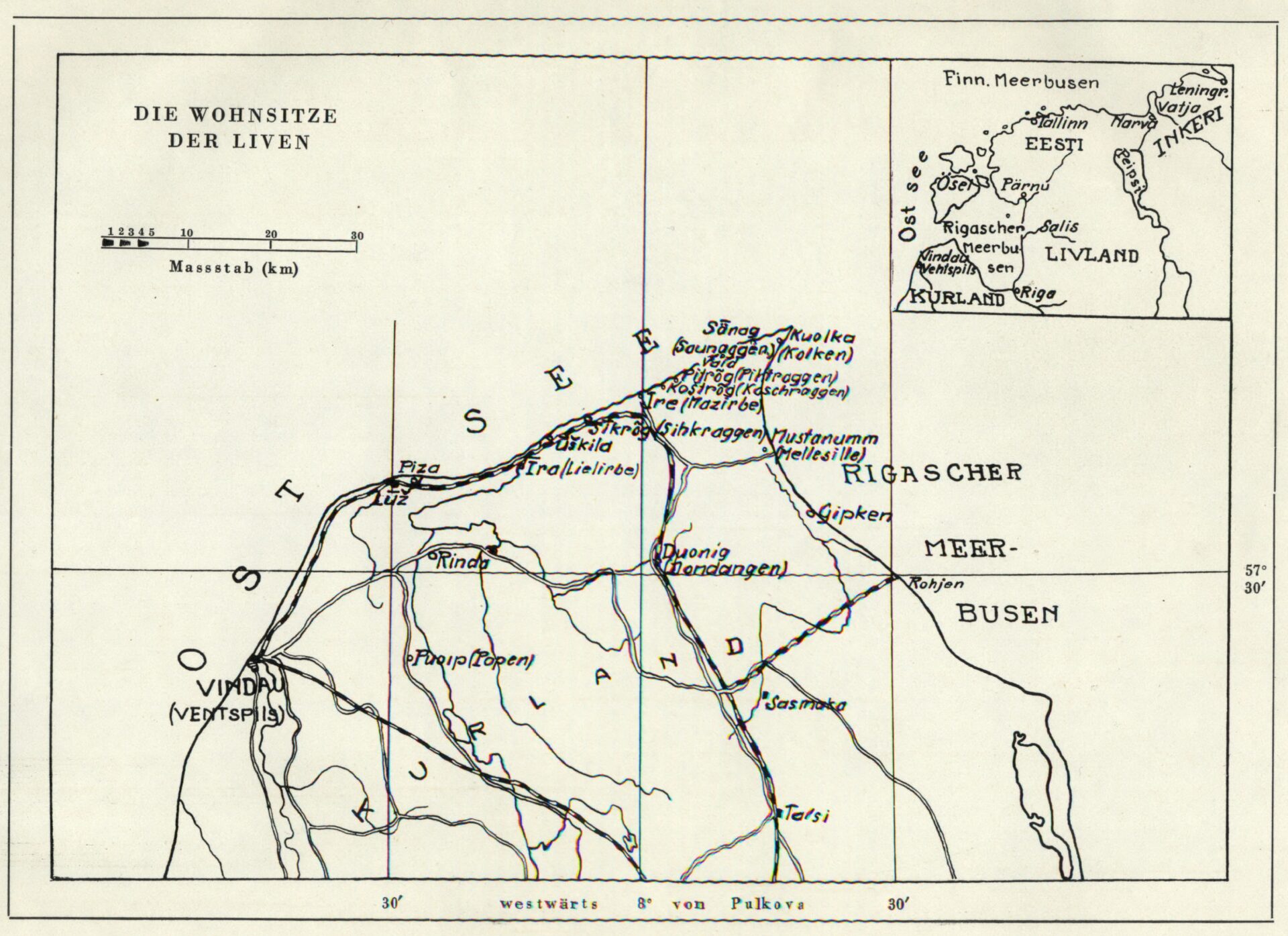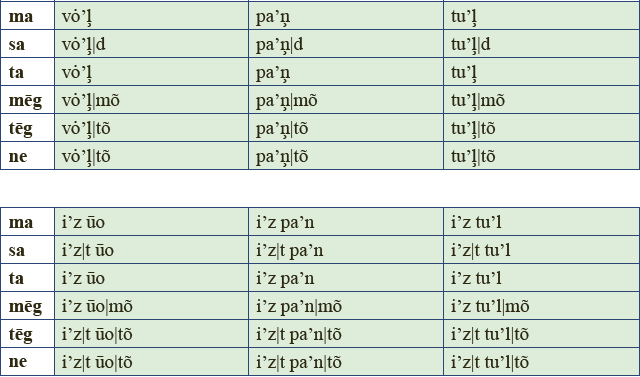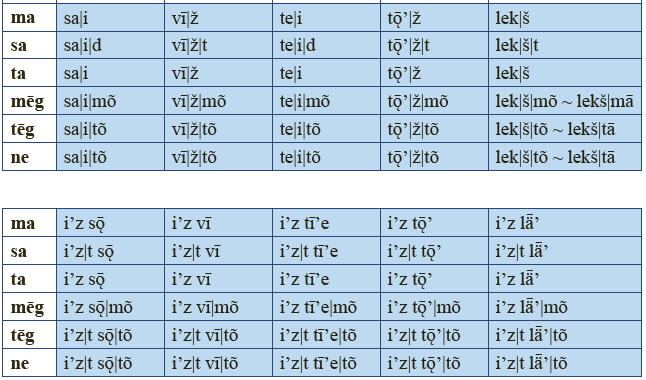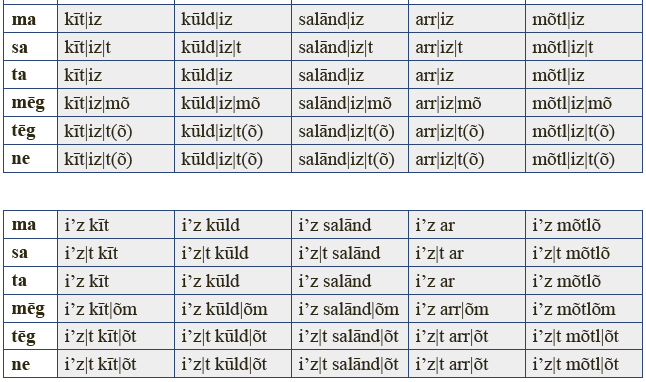
Livonian
5.2. Gramatik / Grammar
Conjugation I
The simple past tense forms of the verbs vȱlda ’to be’, pānda ’to put’, and tūlda ’to come’ end in a palatalized consonant. The consonants –ļ and –ņ in the simple past tense stem replace the l and n found in the negative present tense (and also infinitive) forms of these verbs.

Conjugation II
The simple past forms of verbs with monosyllabic vowel-final stems can end in:
- -i – found, e.g., in the verbs kǟ’/dõ ’to walk’, tī’e/dõ ’to do, to make’, sǭ/dõ ’to get’, jūo/dõ ’to drink’. The stem vowels in these words are shortened in the simple past tense, while ǟ and īe are replaced by e, e.g., tī’eb ’(s/he) does, makes’ > tei ’(s/he) did, made’, and ǭ is replaced by a, e.g., sǭb ’(s/he) gets’ > sai ’(s/he) got’;
- -ž – e.g., in the verbs vī/dõ ’to take’, või/dõ ’to be able’, tǭ’/dõ ’to want’ (see the table below);
- -iz – only in the verb nǟ’/dõ ’to see’, which has the past tense stem ne-, e.g., neiz ’(s/he) saw’;
- -š – only in the verb lǟ’dõ ’to go’, which has the past tense stem lek– (see the table below).

Conjugation III
This conjugation group includes disyllabic verbs with gradation, which have a/ā-, u–, and õ-final stems. The simple past tense forms of this group end in either –iz or –īz. When there is a long consonant in the first syllable, the ending is –iz, but when there is a short consonant, the ending is –īz. The affirmative simple past tense forms of verbs in this group are always weak grade and the stem vowel found in singular present tense forms is lost in the past tense.


Conjugation IV
This conjugation group is composed of polysyllabic verbs without gradation with consonant-final stems. The simple past tense ending for these verbs is always –iz.



